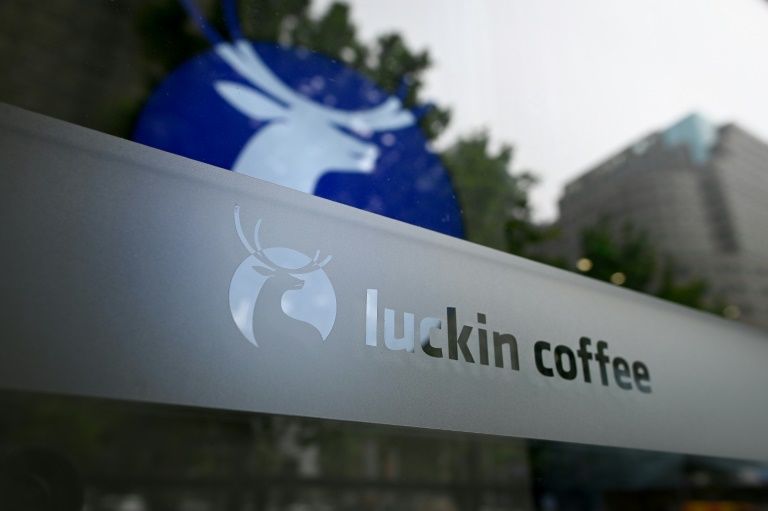China’s scandal-hit Luckin Coffee ousts chairman
Luckin had aimed to topple Starbucks in China with an aggressive growth strategy. ©AFP/File WANG ZHAO
Beijing (AFP) – China’s would-be Starbucks rival Luckin Coffee has removed its co-founder and chairman after a scandal involving fake sales figures that resulted in the company being delisted from the US Nasdaq and the ouster of two top executives.
Luckin’s billionaire founder Charles Zhengyao Lu has been replaced as chairman by Jinyi Guo, previously the acting CEO, the embattled coffee chain said in a statement on its website dated Monday.
Guo will also take over as CEO.
The announcement came days after company directors had voted to keep Lu on the board despite an internal investigation that found the company had inflated its 2019 sales revenue by some 2.12 billion yuan ($311 million).
Luckin was delisted from Nasdaq earlier this month after suspending trading on June 29, having been asked to do so by the exchange.
Lu’s removal had increasingly been seen as a key step for the company to move forward and begin repairing its tarnished brand.
Its shares had been in freefall since April after the company revealed that a top executive had cooked the books.
Apart from the inflated revenue, Luckin’s 2019 costs and expenses were also inflated by 1.34 billion yuan, the internal investigation found.
Launched in 2017, the Chinese coffee chain made a remarkable debut on Wall Street in May 2019, raising US$561 million during its IPO. Shares soared by more than 50 percent in initial trading.
The coffee start-up had aimed to dethrone Starbucks in China by pursuing an aggressive growth strategy, enticing customers with an app-based purchasing model which prioritised takeaway and delivery options, and generous mobile coupons.
By the end of 2019, the Xiamen-headquartered chain’s 4,500 outlets in mainland China had already surpassed Starbucks’ 4,300 stores, and investors touted the company’s potential to go global.
Luckin said on Monday it would “continue to focus on growing its business”.
Luckin stock, which had peaked at around $50 per share in January, traded on the off-exchange over-the-counter markets at just $2.90 on Monday.
Disclaimer: Validity of the above story is for 7 Days from original date of publishing. Source: AFP.


